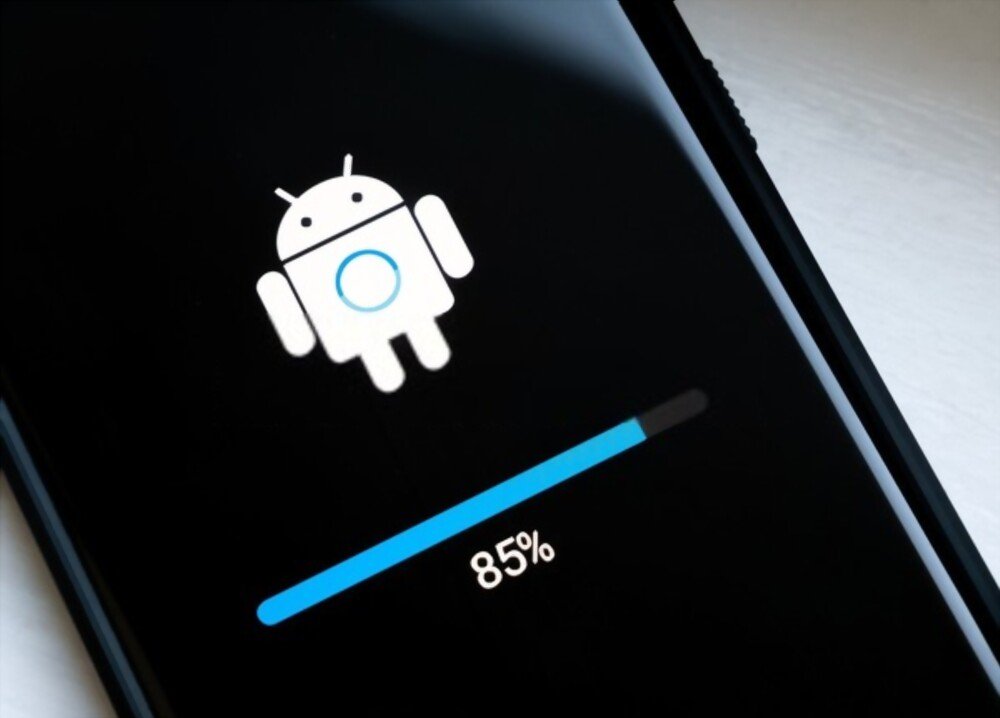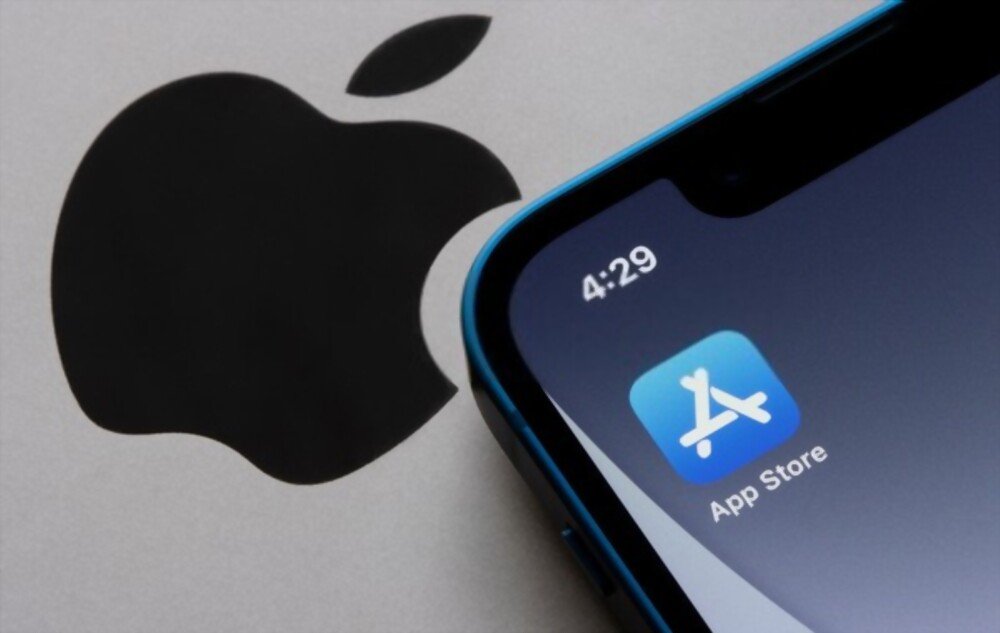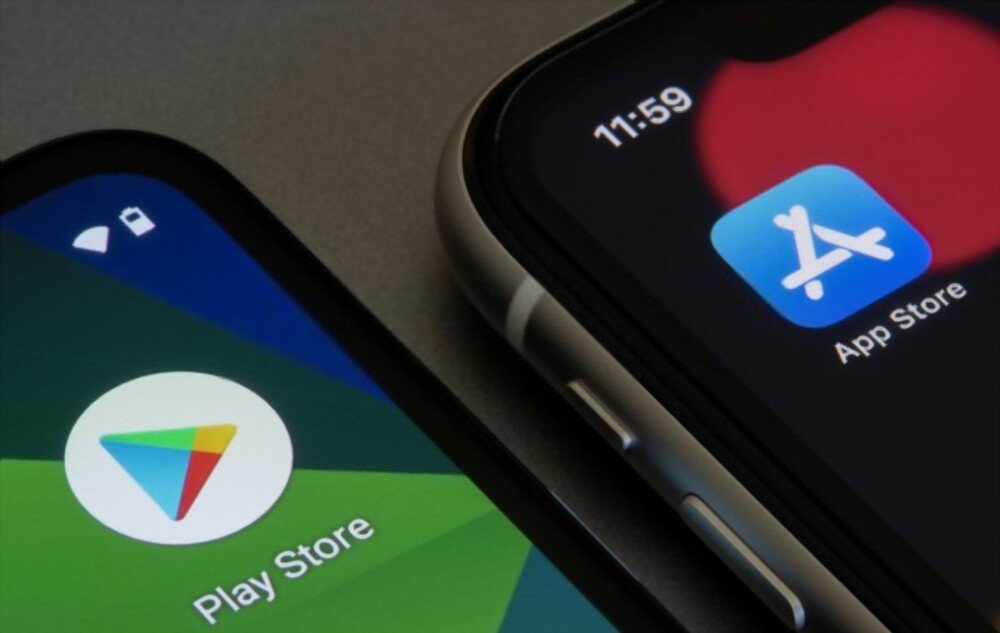The smartphone market is dominated by two main operating systems: Android and iOS . In this article, we will explore why the majority of smartphones are equipped with the Android operating system and how it compares to iOS and other mobile operating systems.
What is a mobile operating system?

A mobile operating system is software that enables a mobile device , such as a smartphone, tablet, or smartwatch, to function. It manages the device's hardware and software resources, including memory, processor, screen, keyboard, camera, GPS, Wi-Fi, battery, and more. It also provides a user interface that allows the user to interact with the device and run applications.
The advantages and disadvantages of Android
 Android is the most widely used mobile operating system in the world. According to the research firm StatCounter, it held 72.5% of the global market share in November 2021. Android was developed by Google using a Linux kernel and is distributed under an open-source license. This means that smartphone manufacturers can freely adapt it to their needs and add specific features. This explains the wide variety of Android smartphone models available on the market, covering all price and performance ranges.
Android is the most widely used mobile operating system in the world. According to the research firm StatCounter, it held 72.5% of the global market share in November 2021. Android was developed by Google using a Linux kernel and is distributed under an open-source license. This means that smartphone manufacturers can freely adapt it to their needs and add specific features. This explains the wide variety of Android smartphone models available on the market, covering all price and performance ranges.
The main advantages of Android are:
- Its compatibility with numerous devices and accessories, thanks to its wide distribution and open standards.
- Its flexibility allows the user to personalize their experience by choosing from a multitude of themes, widgets, application launchers, etc.
- Its integration with Google services, such as Gmail, Google Maps, Google Photos, Google Assistant, etc., which offer convenient and synchronized features.
- Its access to a vast catalogue of applications on the Google Play Store, which had more than 3 million applications in 2021.

The main disadvantages of Android are:
- Its fragmentation makes updating the operating system on all devices difficult. Each manufacturer must adapt the new version of Android to its own models and obtain authorization from mobile operators to distribute it. This leads to delays and inconsistencies between devices. According to Google, in May 2021, only 31% of Android devices were using the latest version of the operating system (Android 11), while 19% were still using a version dating back to 2017 or earlier.
- Its vulnerability to viruses and malware stems from its open nature and lack of control over applications. According to a Nokia study, 97% of mobile malware targeted Android in 2020. Therefore, it is recommended to use antivirus software for Android and to pay close attention to the permissions requested by applications.
- Its consumption is higher than that of iOS, due to its complexity and the multiplicity of background processes.
The advantages and disadvantages of iOS

iOS is the mobile operating system developed by Apple for its own devices: iPhone, iPad, and iPod touch. It was launched in 2007 with the first iPhone and has since seen 15 major versions. According to StatCounter, it held a 26% global market share in November 2021. iOS is a closed and proprietary operating system: Apple has complete control over its development, distribution, and operation on its devices.
The main advantages of iOS are:
- Its consistency provides a smooth and intuitive user experience across all Apple devices. iOS also benefits from a clean and elegant interface that showcases applications.
- Its security protects users' personal data and limits the risk of infection by viruses or malware. iOS has an advanced encryption system and imposes strict rules on developers for publishing their applications on the App Store.
- Its quality guarantees a high level of performance and reliability on Apple devices. iOS is optimized to take full advantage of the hardware features of iPhones and iPads, such as the A15 Bionic processor and the M1 chip. iOS also benefits from regular updates that bring improvements and new features.
- Its ecosystem allows for easy integration with other Apple products, such as the Mac, Apple Watch, and AirPods. iOS also offers exclusive services like FaceTime, iMessage, and iCloud.

The main disadvantages of iOS are:
- Its cost limits access to Apple devices. Indeed, iPhones and iPads are generally more expensive than equivalent Android smartphones and tablets in terms of technical specifications.
- Its closed nature reduces customization options and compatibility with non-Apple devices and accessories. iOS also imposes certain restrictions on users, such as the inability to change the default web browser or virtual keyboard.
- Its access to certain applications that are not available on the App Store or that are censored by Apple for ethical or legal reasons.
Other mobile operating systems

Besides Android and iOS, there are a few other mobile operating systems that have a marginal market share or are intended for specific uses.
Among them:
- Windows 10 Mobile : the mobile operating system developed by Microsoft as a successor to Windows Phone. It was launched in 2015 but failed to gain traction against Android and iOS. Microsoft announced the end of support for the system in December 2019.
- KaiOS : the Firefox OS-based mobile operating system that powers feature phones (or basic phones). It allows access to certain applications like WhatsApp or YouTube on inexpensive and resource-efficient devices. It is particularly popular in emerging countries such as India and Africa.
- HarmonyOS : the mobile operating system developed by Huawei to replace Android on its devices following US sanctions that prohibit it from accessing Google services. It was launched in June 2021 in China but is not yet available in the rest of the world.
Comparative table of mobile operating systems
| System | Benefits | Disadvantages |
| Android | Compatibility, Flexibility, Integration, Access | Fragmentation Vulnerability Consumption |
| iOS | Consistency, Safety, Quality, Ecosystem | Cost of Closure Access |
| Windows 10 Mobile | Continuity with Windows 10 Cortana | Few devices, few applications, end of support |
| KaiOS | Simplicity Accessibility Connectivity | Limited features, variable quality |
| HarmonyOS | Independence, Innovation, Interoperability | Uncertain availability, uncertain compatibility, uncertain security |
FAQ
What is the best operating system for smartphones?
There is no universal answer to this question, as the choice of operating system depends on each user's preferences and needs. Some criteria to consider are:
- Budget: Android devices are generally cheaper than iOS devices, but there are also high-end models that can compete with iPhones in terms of price and performance.
- The ecosystem: if you already own Apple or Google products, it may be more convenient to choose an operating system compatible with them to facilitate synchronization and use of associated services.
- Personalization: If you like to change the look and feel of your smartphone, Android offers more possibilities than iOS, which is more locked and uniform.
- Security: If you are concerned about protecting your personal data and preventing risks related to viruses or malware, iOS offers you more guarantees than Android, which is more exposed to attacks and leaks.
- Apps: If you're looking for access to a wide selection of apps, Android and iOS are comparable in terms of quantity and quality. However, some apps may be exclusive to one operating system or the other, or have different features depending on the platform.
What is the difference between an operating system and a custom interface?
An operating system is the basic software that allows a smartphone to function. It manages the device's hardware and software resources and provides a user interface.
A custom interface is a set of modifications made by the smartphone manufacturer to the original operating system. It aims to personalize the appearance and behavior of the smartphone, add specific features, or differentiate it from other models.
For example, Samsung offers the One UI interface on its Android smartphones, which modifies the appearance of icons, menus, notifications, etc. It also integrates Samsung's own applications, such as Bixby or Samsung Health.
What is rooting or jailbreaking?
Rooting or jailbreaking are operations that aim to bypass the restrictions imposed by the manufacturer or developer of the operating system on a smartphone. They allow the user to access administrator (or root) rights on their device and to modify or delete system files.
Rooting applies to Android smartphones, while jailbreaking applies to iOS smartphones.
The advantages of rooting or jailbreaking are:
- The ability to personalize your smartphone beyond normal limits, by changing, for example, the theme, fonts, sounds, etc.
- The ability to install applications that are not available on the Google Play Store or the App Store, or that require special permissions.
- The ability to remove pre-installed applications from the manufacturer or phone operator, which may be useless or unwanted.
- The ability to improve the performance or battery life of the smartphone, for example by modifying the processor frequency or battery management.
The disadvantages of rooting or jailbreaking are:
- The risk of losing the smartphone warranty or technical support from the manufacturer or the operating system developer.
- The risk of damaging the smartphone or rendering it unusable in case of error or mishandling.
- The risk of exposing the smartphone to viruses or malware that could exploit security vulnerabilities created by rooting or jailbreaking.
Conclusion
In conclusion, the majority of smartphones are equipped with the Android operating system due to its compatibility, flexibility, and integration with Google services. iOS, on the other hand, remains a premium alternative offering a consistent and secure user experience. The choice between these two operating systems depends primarily on each user's preferences and needs. For example, if you want to block intrusive ads on Android and iOS , you will need to use specific applications or browsers. Other mobile operating systems exist but have a marginal market share or are designed for specific uses.

![[GetPaidStock.com]-646ca1ef15be1](https://tt-hardware.com/wp-content/uploads/2023/05/GetPaidStock.com-646ca1ef15be1-696x369.jpg)


